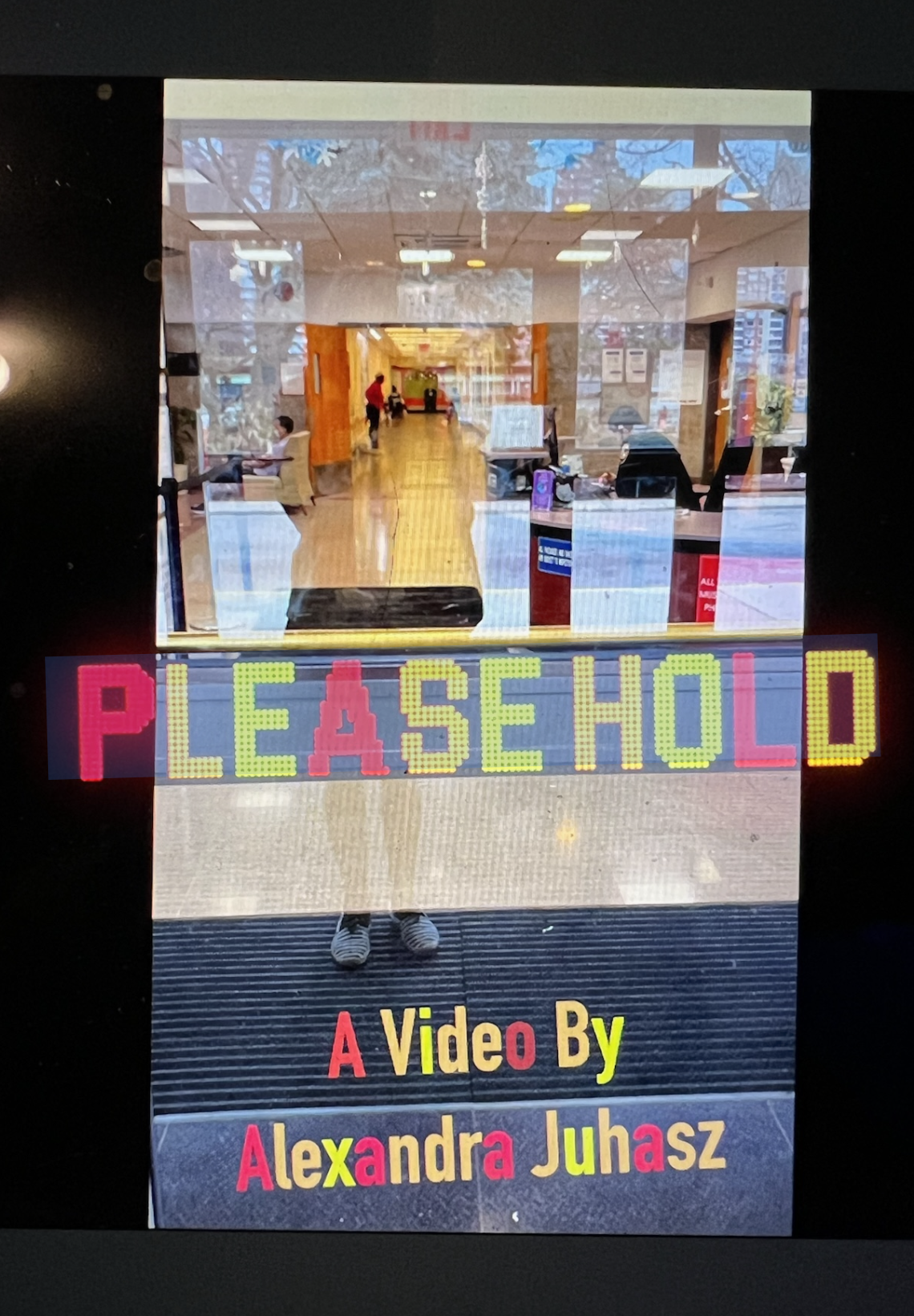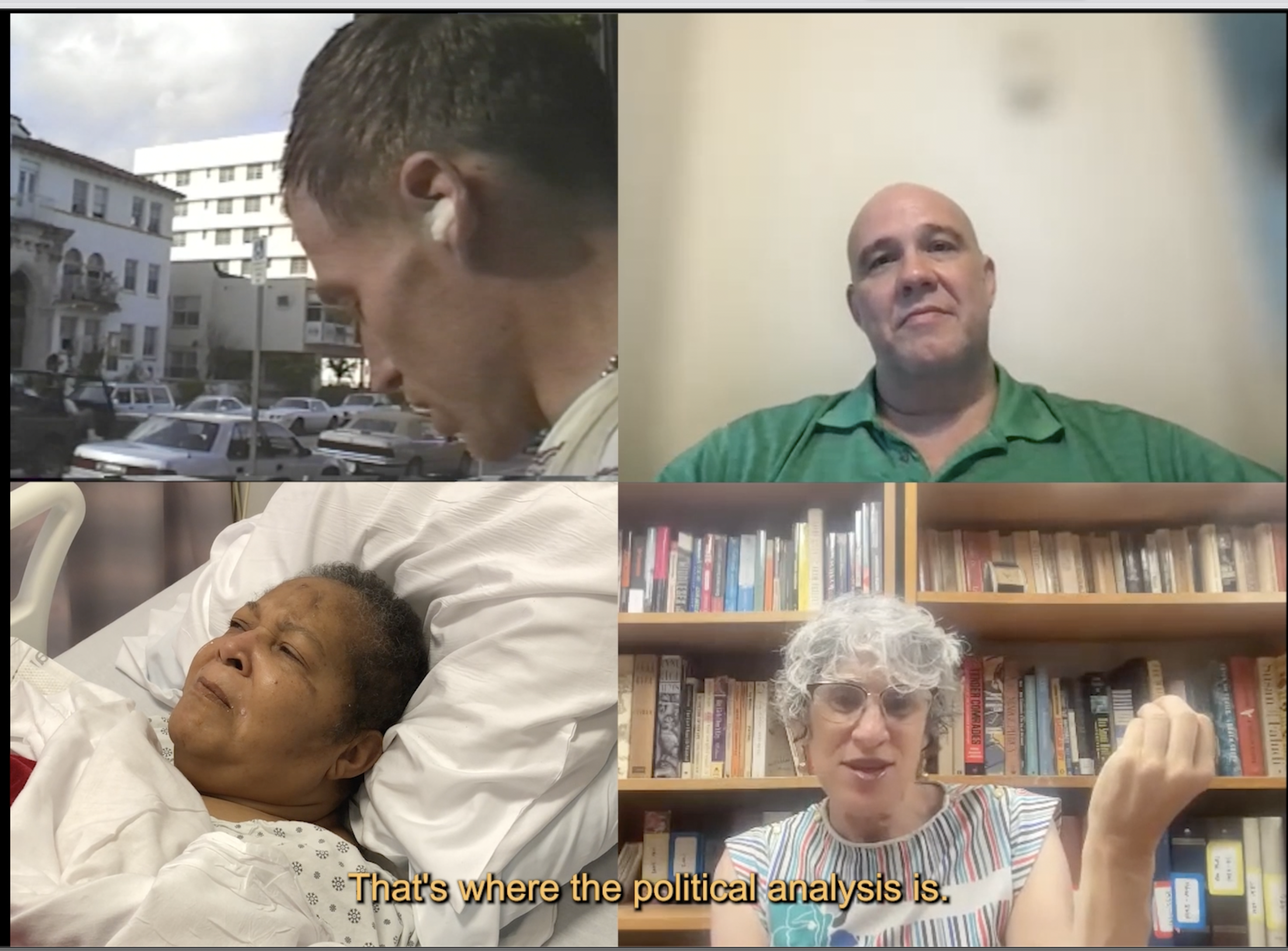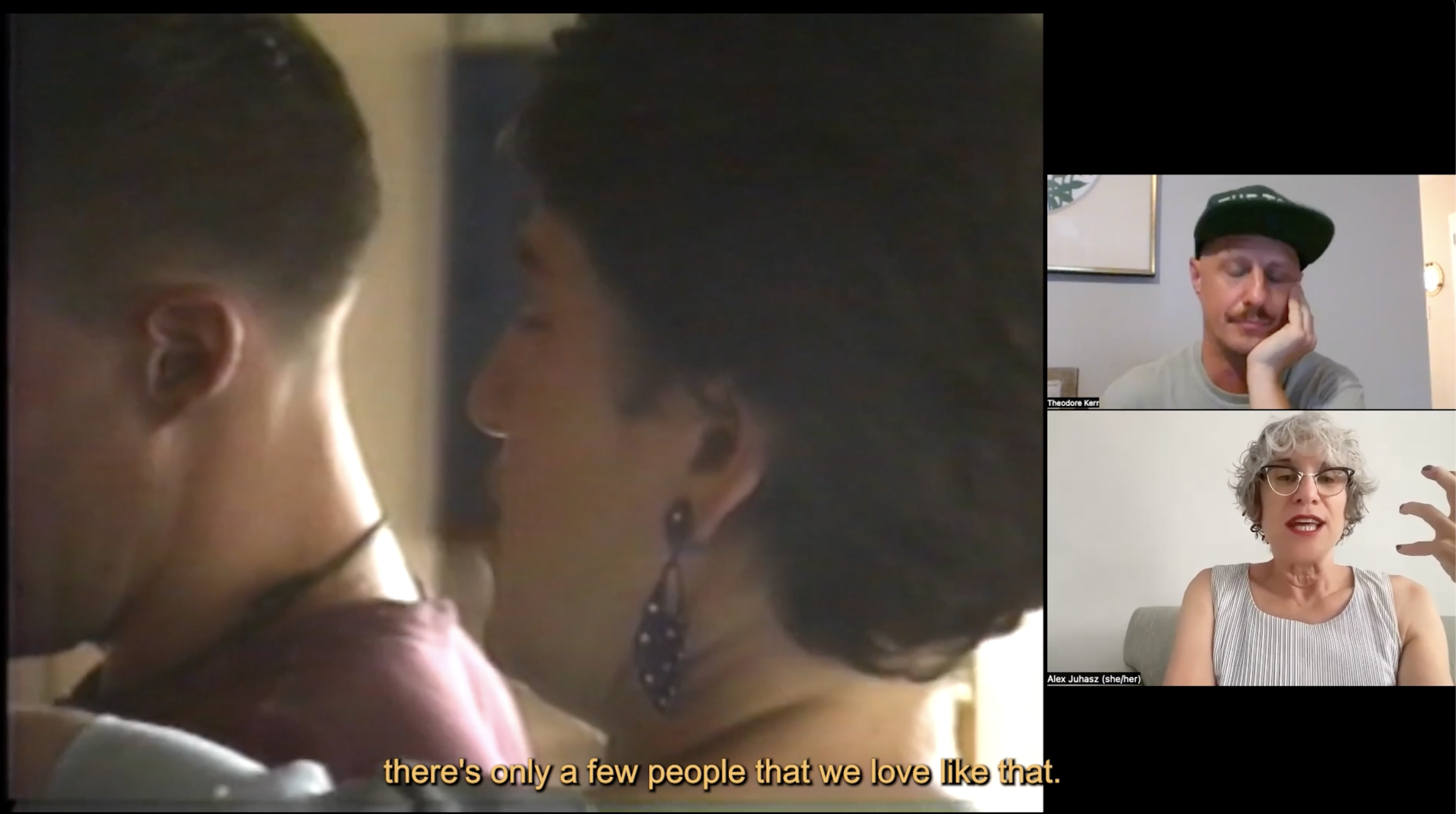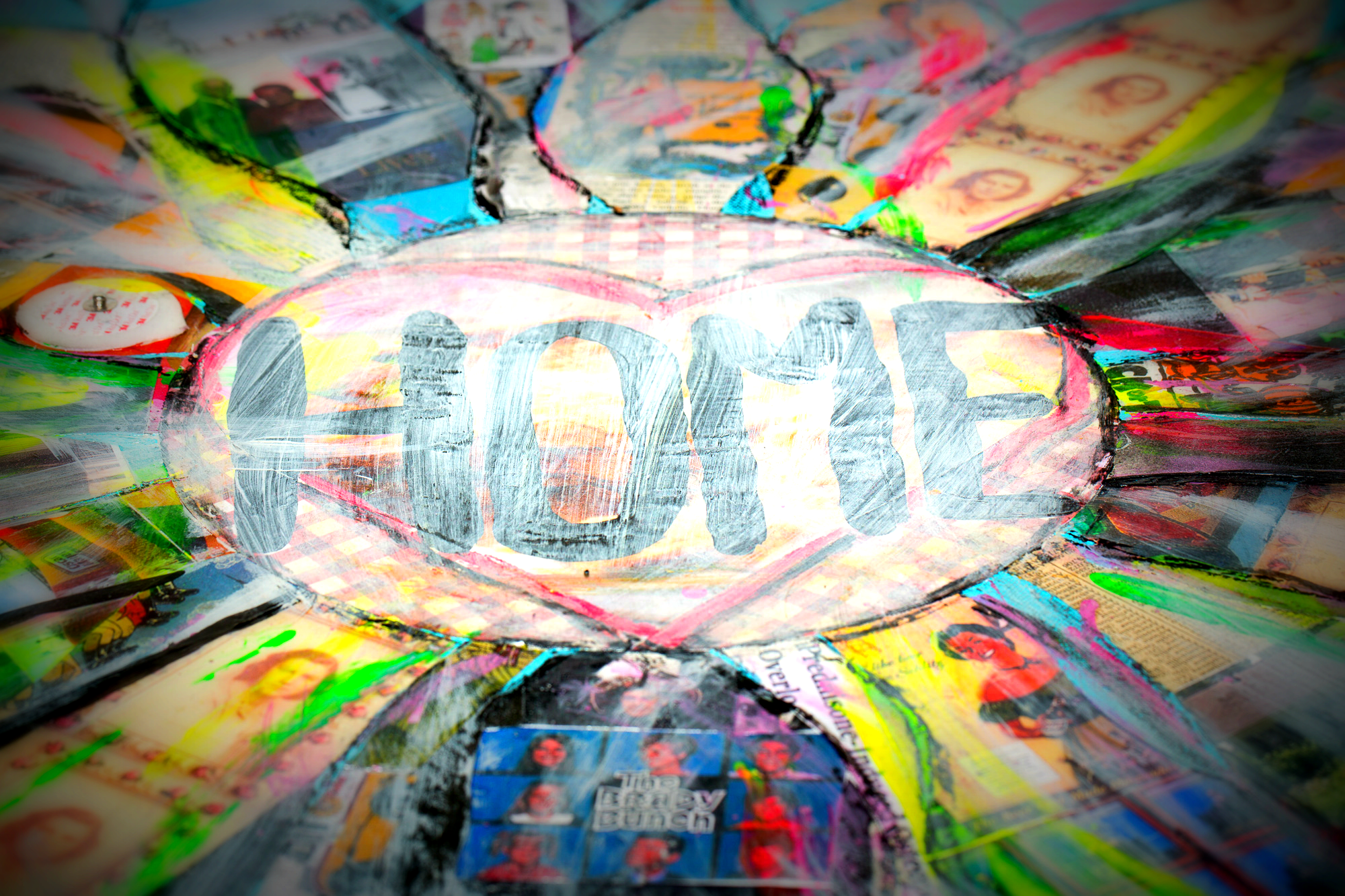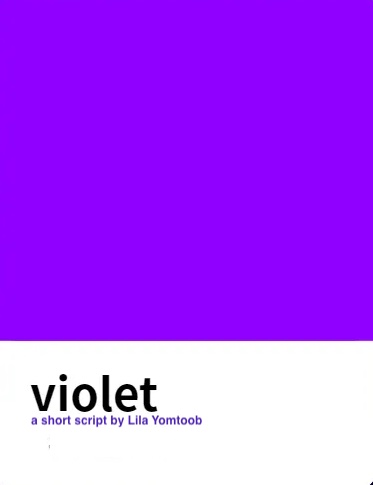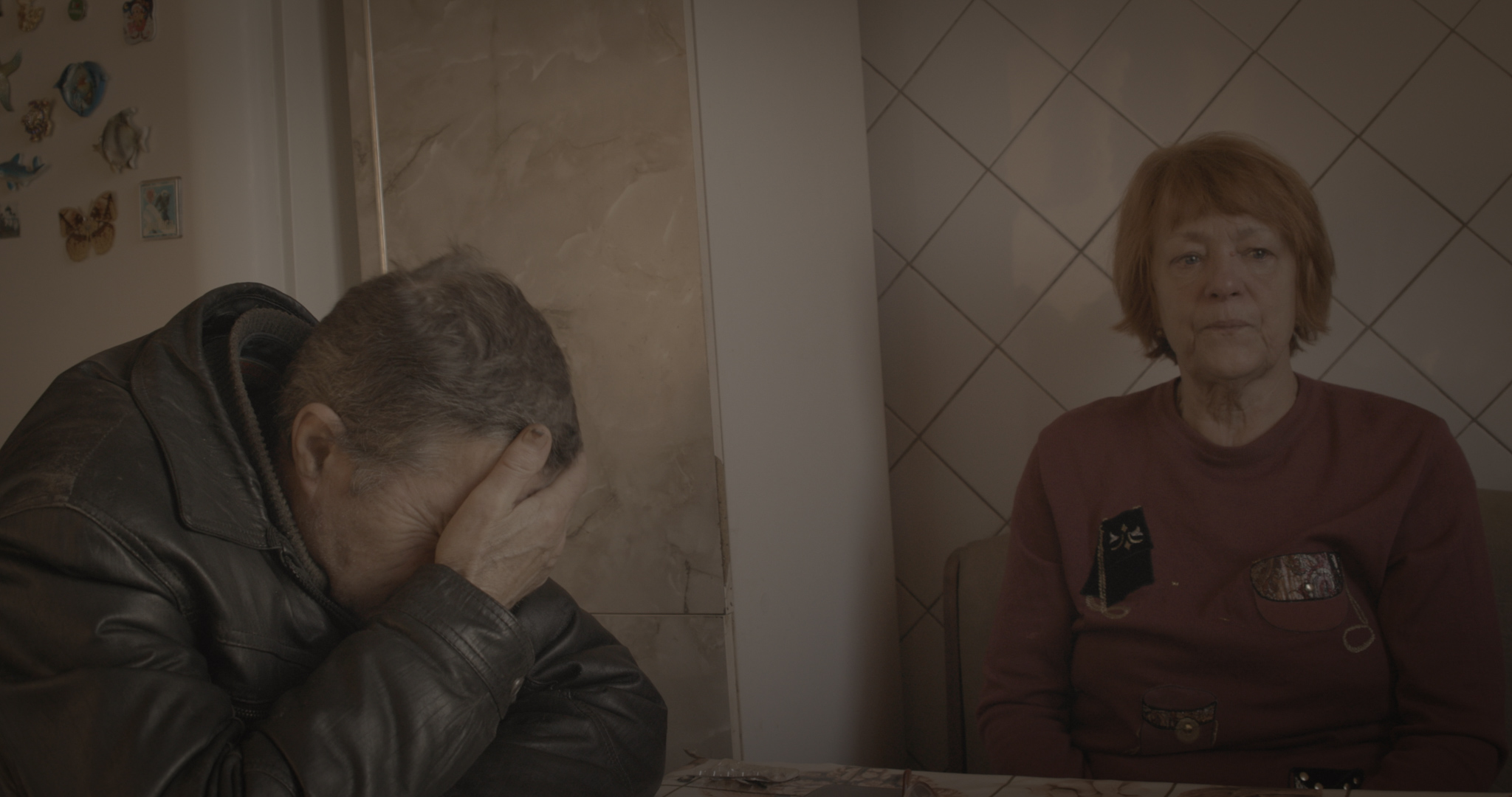Genre
Synopsis
What does it mean to hold the legacy of beloveds on changing formats? How does mourning, haunting, and memory change across time and tech? Whatever could it mean that twice in my life (in my late 20s and then in my late 50s), two friends (so different from each other) asked me to tape them—as activists and collaborators—as they were dying? PLEASE HOLD is an experimental documentary engaging with decades of AIDS activist media, death bed videos, and the wisdom of living AIDS workers, as we all sit together in one (changing) format, video—VHS, hi-8, digital, Zoom—to address these questions. This one video holds images of: Jim, a gay white male go-go dancer who died painfully before there were meds at 29 in 1993; Juanita, a Black disabled queer feminist media activist who died in 2022 on her own terms, in her sixties, and due largely to inequities in the American healthcare system and COVID; Alex, queer feminist AIDS activist caught with them on tape at 29 and 59; and fellow AIDS workers, Ted Kerr, Marty Fink, Pato Hebert, Jih-Fei Cheng and more. PLEASE HOLD addresses how mourning, holding, remembering, and living change over time and tech. VHS is different from Zoom; twenty is not sixty. AIDS is not over.
Bio
Dr. Alexandra Juhasz is Distinguished Professor of Film at Brooklyn College, CUNY. She has directed the feature documentaries SCALE: Measuring Might in the Media Age (2008), Video Remains (2005), Dear Gabe (2003) and Women of Vision: 18 Histories in Feminist Film and Video (1998), and the shorts RELEASED: 5 Short Videos about Women and Film (2000) and Naming Prairie (2001), a Sundance Film Festival, 2002, official selection. She is the producer of the feature films, The Watermelon Woman (Cheryl Dunye, 1997) and The Owls (Dunye, 2010). She is the producer of the shorts DiAna's Hair Ego Remix (Dunye and Ellen Spiro, 2017), Bad Bosses Go to Hell (Erin Cramer, 1997) and I Want to Leave a Legacy: The video/activism of Juanita Mohammed Szczepasnki (Juanita Szczepanski, 2023). Dr. Juhasz is the producer of educational videotapes on feminist issues from AIDS to teen pregnancy. Her work as an activist videomaker began in 1987 with three tapes for GMHC's Living with AIDS cable show: Women and AIDS (1987 with Jean Carlomusto), Prostitutes, Risk, and AIDS (1988) and A Test for the Nation: Women, Children, Families, AIDS (1988). The collectively made We Care: A Video for Care Providers of People Affected by AIDS (The Women's AIDS Video Enterprise, 1990) has maintained an active profile in activist circles. Dr. Juhasz writes about and makes feminist, queer, fake, and AIDS documentary. Her current work attends to fake news, poetry, online feminist pedagogy, YouTube, and more.
Credits
Director - Alexandra Juhasz
Producer - Alexandra Juhasz
Camera and Sound - Alexandra Juhasz
Editor - Matthew Hittle
Sound Mix - Paul Hill

